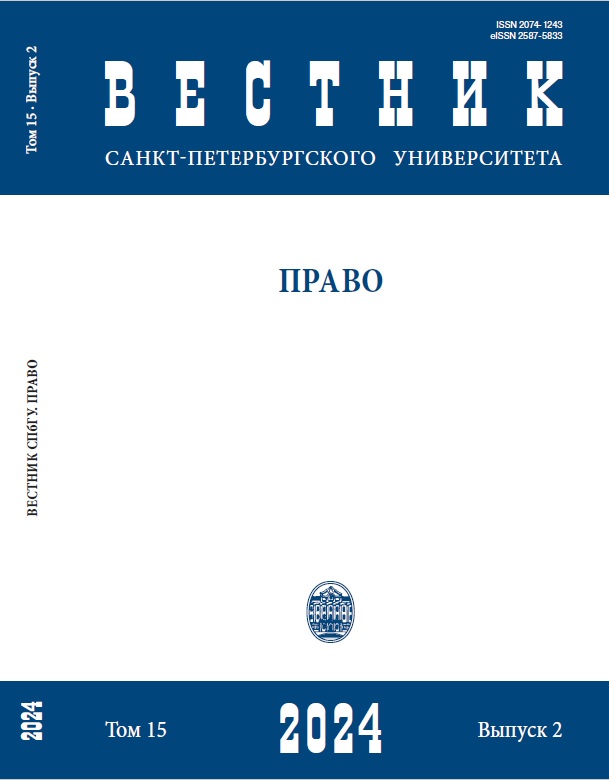Judge requirements and ethical issues in the Cooperation Council for the Arab States of the Gulf
DOI:
https://doi.org/10.21638/spbu14.2024.212Abstract
This paper examines the core sources governing judicial ethics in the Cooperation Council for the Arab States of the Gulf (GCC), primarily in the United Arab Emirates (UAE), taking into account mixed nature of its legal system, comparing to the Kingdom of Saudi Arabia (KSA) with its more religious approach and the State of Qatar with a manifested democratic one. On grounds of the analysis and systematization of the regulatory framework, a study
was conducted in accordance with the current state of affairs regarding qādī qualifications in
Arab countries and summarized in a table. The ideological differences in Islam are also taken into account through the study of the opinions of authoritative mujtahids and the works of foreign scholars. The authors have analyzed Islamic doctrine and compared it with the current Emirati, Saudi and Qatari legislation regarding the requirements for judge (qādī). The United Arab Emirates federal laws and decrees more precisely elaborate teachings and modify specific evaluative concepts. They also provide more lenient rules, despite the predominance of Mālikī and Hanafī madhabs. The authors also note the more detailed regulation of the disciplinary
and criminal responsibility of judges and slight changes in relation to the observations
indicated in the Reports of the Special Rapporteur on the Independence of Judges and Lawyers No. A/HRC/29/26 2015 in UAE and Qatar. The Kingdom of Saudi Arabia and Qatar has more similar, but rigid regulation due to one madhab domination (Hanbali). The issue calls for the revision of a number of laws that are examined in detail, since the implementation of them causes inequality that deems to be fought against.
Keywords:
Saudi Arabia, the UAE, Qatar, qādī, Islamic law, Sharī’ah, judge requirements, judicial ethics, GCC, Gulf Cooperation Council, United Arab Emirates
Downloads
References
Downloads
Published
How to Cite
Issue
Section
License
Articles of "Vestnik of Saint Petersburg University. Law" are open access distributed under the terms of the License Agreement with Saint Petersburg State University, which permits to the authors unrestricted distribution and self-archiving free of charge.






